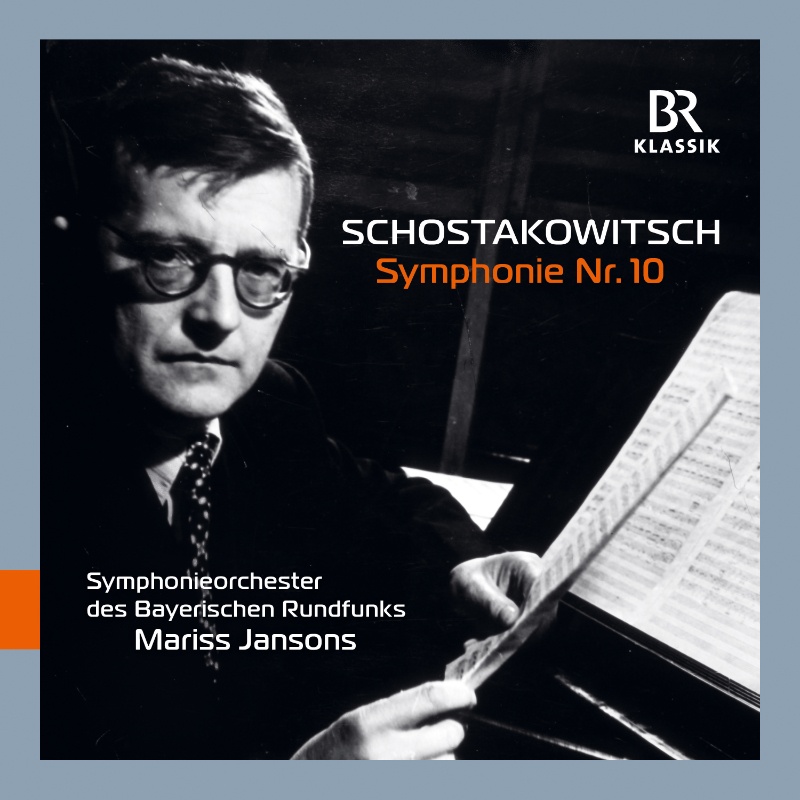
Dmitri Shostakovich – Symphony No. 10

Shostakovich’s 10th Symphony with the Symphonieorchester des Bayerischen Rundfunks under Chief Conductor Mariss Jansons in a live concert recording from March 2010.
Order online nowShostakovich’s 10th Symphony subsumes the composer’s confrontation with Stalin and the Stalin years, even if experts disagree on how it should be interpreted. Even after 1945 – despite, or perhaps because of, the war that had been won – life in the Soviet Union became no easier. Dmitri Shostakovich also suffered from the repression during Stalin’s reign of terror. He had been accused of formalism since 1936, and had had to withdraw his Fourth Symphony as a result. He had also failed to produce the triumphant music expected of him following the victory over Nazi Germany: his grotesque Ninth Symphony was far removed from this and also contained hidden but sharply critical references to Stalin. After suffering humiliation in the course of the “anti-Formalist” purges of 1948, during which he was relieved of his teaching posts, Shostakovich withdrew from public life. Immediately after Stalin’s death on March 5, 1953, he was able to bring forth a significant number of serious works that he had shelved and that were all awaiting either premieres or rehabilitation. His Tenth Symphony – composed between July and October 1953 – was premiered on December 17, 1953 by the Leningrad Philharmonic Orchestra conducted by Yevgeny Mravinsky. It was the first symphonic work he had composed since 1945.
Mariss Jansons considers Dmitri Shostakovich to be one of the most serious and sincere composers ever, and finds the fifteen symphonies in particular to be deeply moving and captivating. He sees their music as bearing shattering testimony to a traumatic era of political darkness, while remaining a timeless expression of existential human feeling and experience. Over a period of seventeen years, Mariss Jansons has recorded all the Shostakovich symphonies, on each occasion together with the orchestra he was artistically associated with at the time. Six of the performances were with the Symphonieorchester des Bayerischen Rundfunks. In 2006 the cycle was completed in time for the centenary of the composer’s birth. The performance of the Thirteenth Symphony was awarded a Grammy in the “Best Orchestral Performance” category.
The concert recording of the Tenth Symphony was made on March 4, 2010 in the Herkulessaal of the Munich Residenz. Under Jansons’ baton, the musicians of the Symphonieorchester des Bayerischen Rundfunks interpret Shostakovich’s Tenth Symphony as a work of confession: a settling of accounts with the dictator Stalin and with the terror regime under which Shostakovich had also suffered. The live recording of that concert, now released on CD by BR-KLASSIK, offers an exemplary interpretation of one of the most important symphonic works of the 20th century.
Symphonieorchester des Bayerischen Rundfunks
Mariss Jansons conductor
1 CD highprice
Product number: 900185
Total Time: 53’48 min.
- Concert recording of Shostakovich’s Tenth Symphony on March 4, 2010
- Exciting live atmosphere with the special acoustics of the Herkulessaal of the Munich Residenz
- A symphony especially close to the heart of Mariss Jansons – a proven expert and international award-winner where the music of Shostakovich is concerned
- Performed by the Symphonieorchester des Bayerischen Rundfunks under their Chief Conductor
Award
Preis der deutschen Schallplattenkritik (Bestenliste 1/2020).